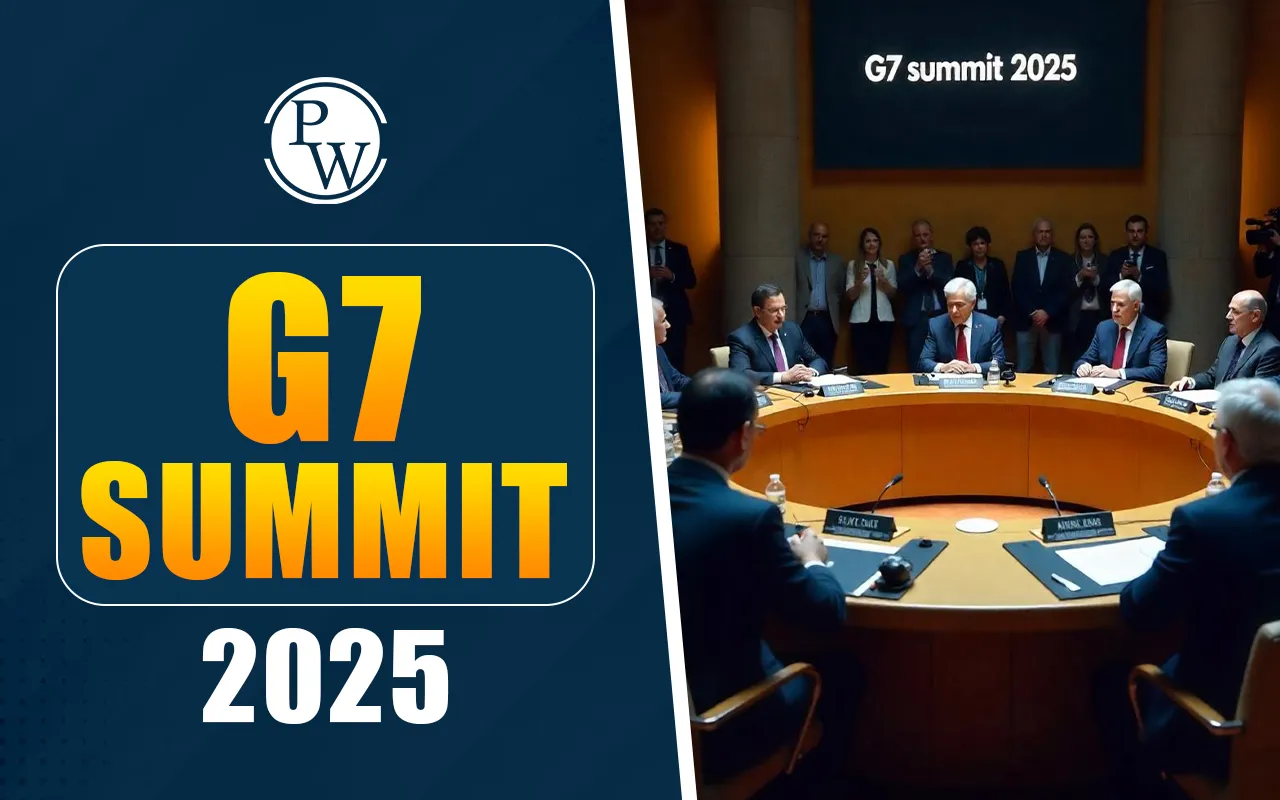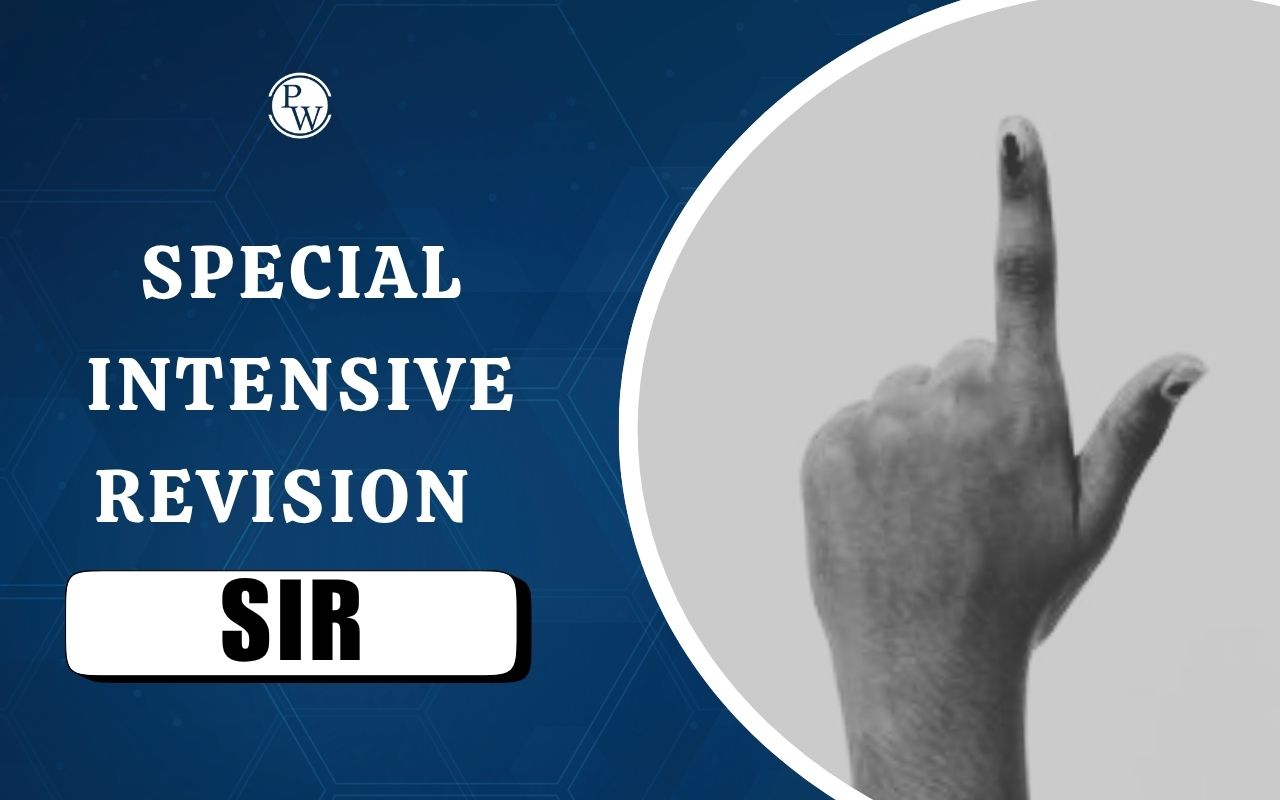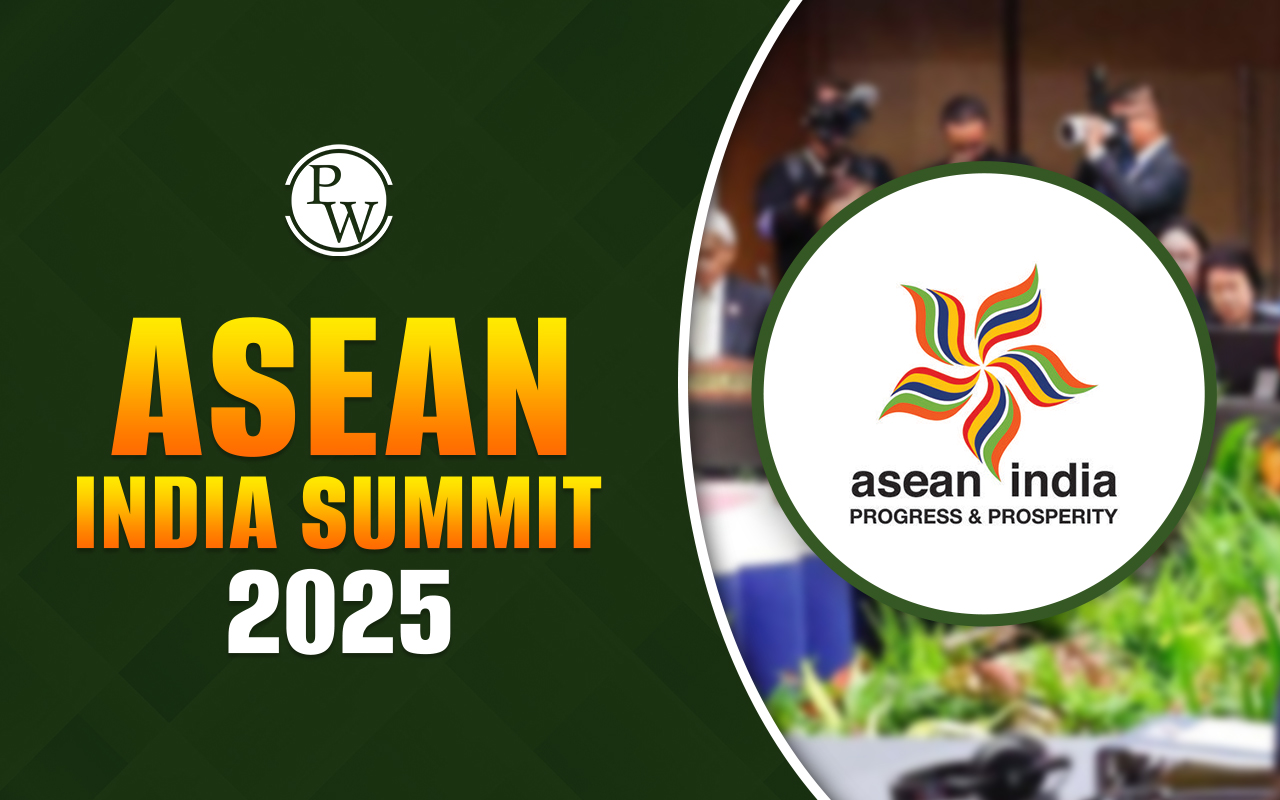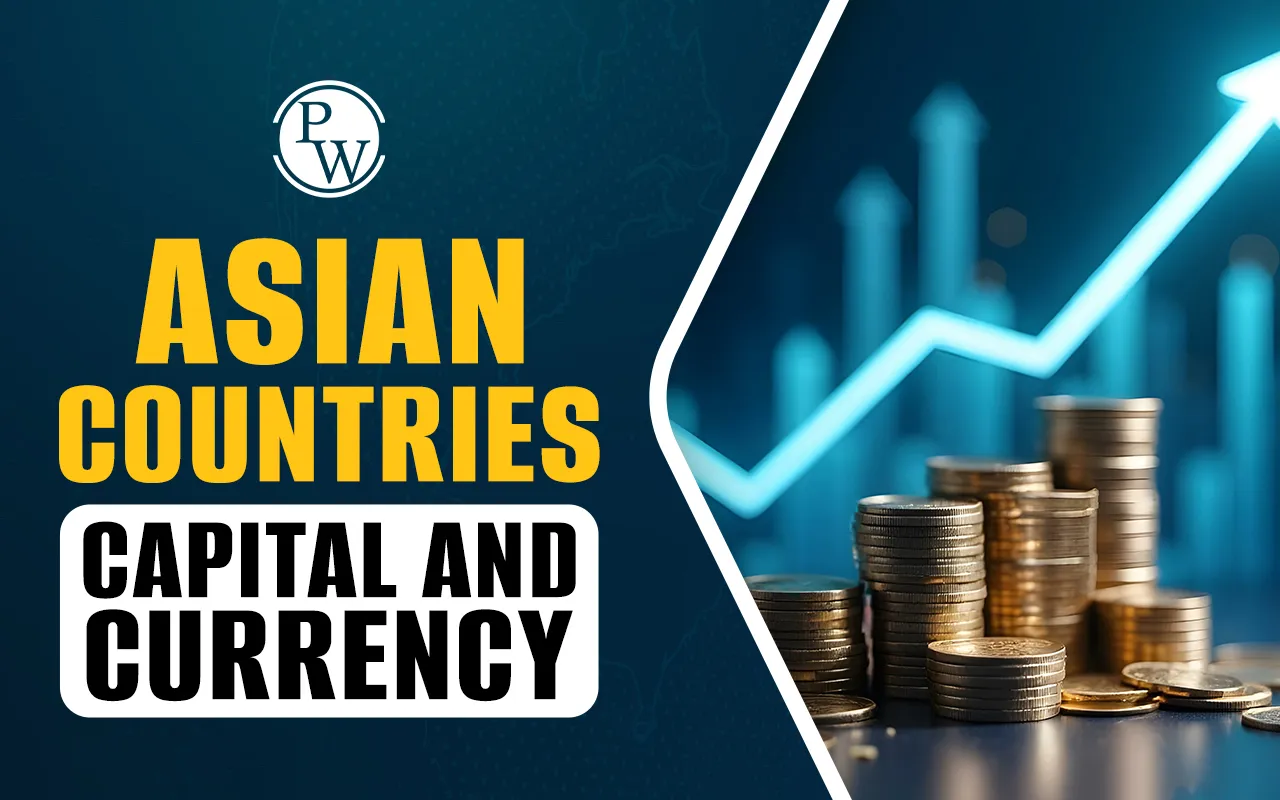
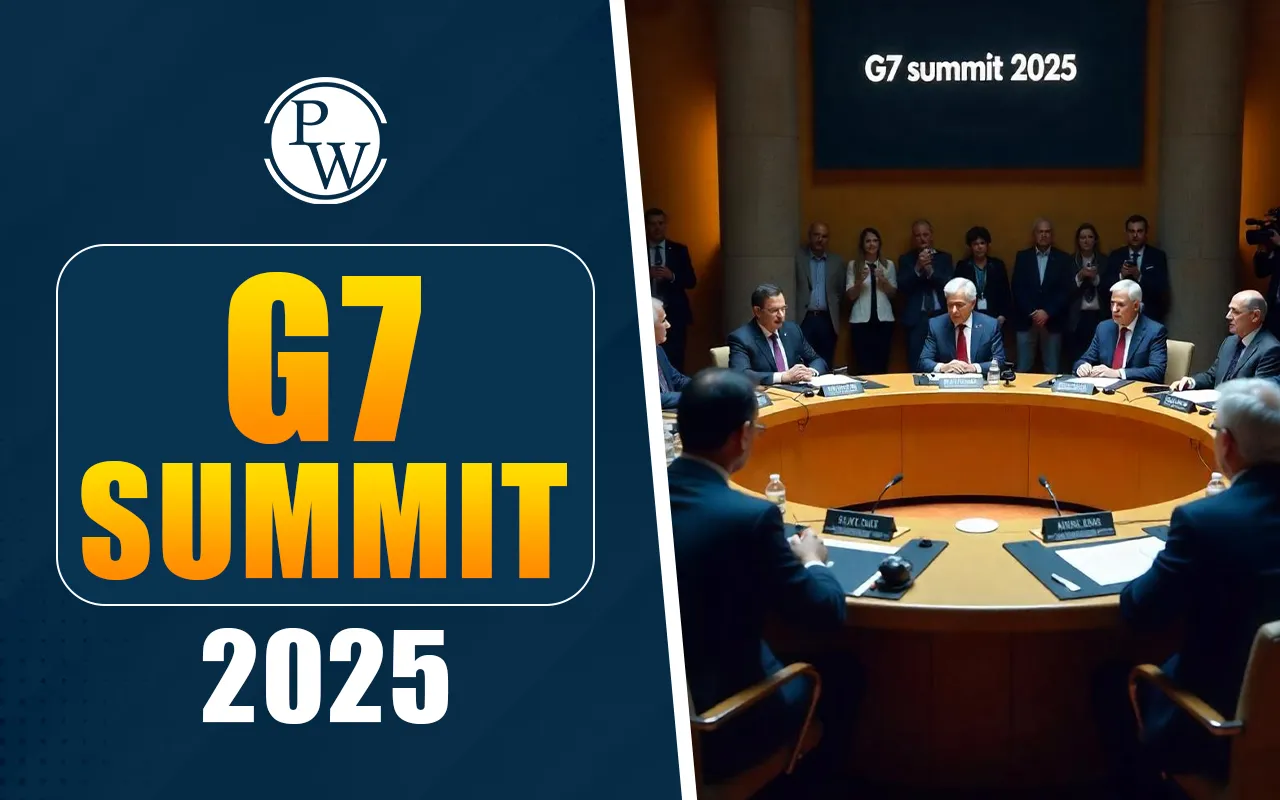
G7 Summit 2025, also known as the 51st G7 Leaders’ Summit, was held from June 15 to 17, 2025, in Kananaskis, Alberta, Canada. It marked the seventh time Canada hosted the summit and coincided with the 50th anniversary of the first G7 summit in 1975. In a year marked by tensions and transitions, the G7 Summit 2025 offered a platform for dialogue and cooperation, concluding with key documents like the G7 Critical Minerals Action Plan.
G7 Summit 2025 Overview
The G7 Summit 2025 marked the 51st meeting of the world’s most advanced economies. Held in Kananaskis, Alberta, Canada, this summit focused on major global issues like conflicts, economic stability, technology, and partnerships. It brought together leaders from the Group of Seven and the European Union, along with invited guests, to discuss global matters and future strategies.
| G7 Summit 2025 Overview | |
| Event | 51st G7 Summit (2025 G7 Leaders’ Summit) |
| Dates | June 15 to 17, 2025 |
| Location | Kananaskis, Alberta, Canada |
| Host Country | Canada (7th time hosting, holding 2025 G7 Presidency) |
| Participating Members | Canada, France, Germany, Italy, Japan, United Kingdom, United States, European Union (EU) |
| Invited Guests | Australia, Mexico, Ukraine |
| Key Objectives |
|
| Major Initiatives & Agreements |
|
| Significance | Marked 50 years since the first G7 summit in 1975; reaffirmed G7's role in global economic and security cooperation |
About the G7 Group
The Group of Seven (G7) is a powerful group of seven advanced economies:
-
Canada
-
France
-
Germany
-
Italy
-
Japan
-
The United Kingdom
-
The United States
The European Union (EU) also participates as a non-enumerated member.
Formed in 1973, the G7 originally focused on economic cooperation on currency, trade, and energy issues. Over time, its role expanded to include climate change, global security, technological shifts, public health, and more. The first G7 Summit took place in 1975 in France with six countries; Canada joined shortly thereafter, making it the seventh member.
Interestingly, Russia was a member from 1997 until its suspension in 2014 following its annexation of Crimea. The G7 group operates without any formal treaty or permanent secretariat and is organized through an annual rotating presidency among its member countries. In 2025, Canada took the lead for the seventh time and hosted the 51st G7 Summit in Kananaskis.
G7 Summit 2025 Location
The 51st G7 Summit was held in Kananaskis Village, in the Rocky Mountains of Alberta, Canada, on June 16 to 17, 2025. This wasn’t the first time Kananaskis hosted a G7 meeting. Back in 2002, it was also the site of the 28th G7 Summit. The choice of location symbolised peace, dialogue, and a connection to nature, relevant in discussions on climate, global crises, and cooperation.
G7 Summit 2025 Theme
The theme of the G7 Summit 2025 was centered around three core priorities:
-
Protecting Communities: Discussions on public health, conflict resolution, and migration.
-
Ensuring Energy Security & Driving Digital Innovation: Emphasis on clean energy, cybersecurity, and digital governance.
-
Strengthening Global Partnerships: Deepening ties with developing countries and democracies worldwide.
Apart from these, Special attention was given to ongoing tensions in the Middle East, particularly the Iran–Israel conflict, and the Russia–Ukraine war.
G7 Summit 2025 Participating Countries
The core G7 members at the summit were:
-
Canada (Host)
-
France
-
Germany
-
Italy
-
Japan
-
United Kingdom
-
United States
-
European Union representatives (Presidents of the European Council and the European Commission)
In addition to the G7 nations, Canada invited leaders from key democracies and global partners, including:
-
India (PM Narendra Modi)
-
Australia
-
Brazil
-
Mexico
-
South Africa
-
South Korea
-
Ukraine
-
Representatives from the United Nations, World Bank, and NATO
India participated in the summit for the 12th time, highlighting its growing role in global affairs. Prime Minister Modi’s presence marked his sixth consecutive G7 appearance, showing continuity and commitment to multilateral diplomacy.
G7 Summit 2025 Outcomes
The 51st G7 Summit covered a broad range of issues. Despite some diplomatic tensions, the summit produced several significant outcomes:
-
Economic and Trade Working Group: Formed by Canada and the UK to improve market access, digital trade, and collaboration on AI and critical minerals.
-
G7 Critical Minerals Action Plan: The G7 launched a Critical Minerals Production Alliance to strengthen clean energy supply chains and support advanced manufacturing, reflecting a shared focus on resource security and sustainability.
-
Kananaskis Wildfire Charter: A commitment to enhance global cooperation to prevent, respond to, and recover from increasingly extreme wildfires that have been causing significant harm worldwide by 2030.
-
Advancing AI and Emerging Tech: G7 leaders pledged to collaborate on artificial intelligence, quantum technologies, and speeding up the global adoption of trustworthy AI, with Canada launching the G7 GovAI Grand Challenge and “Rapid Solution Labs.”
-
Global Security Commitments: The summit addressed global security challenges through joint action against wildfires, foreign interference, transnational repression, and migrant smuggling, including a new G7 Coalition and Action Plan.
-
Support for Ukraine: The G7 committed over $4.3 billion in additional military and financial support to Ukraine and expanded sanctions on those aiding Russia’s aggression.
Overall, the 2025 G7 Summit reaffirmed the group’s commitment to economic stability, climate resilience, technological advancement, and collective security, while highlighting the challenges of maintaining unity amid global geopolitical tensions.
Explore UPSC courses by Physics Wallah to master topics like international relations, G7 summits, and global diplomacy. Learn from India’s top educators and boost your preparation today!
G7 Summit 2025 FAQs
Who hosted the G7 Summit 2025?
Which countries are members of the G7?
What was the focus of the 2025 G7 Summit?
Did India participate in the G7 Summit 2025?
Who is the G7 president in 2026?

UPSC Coaching
